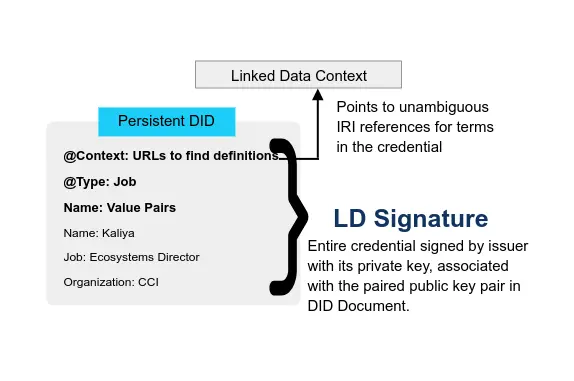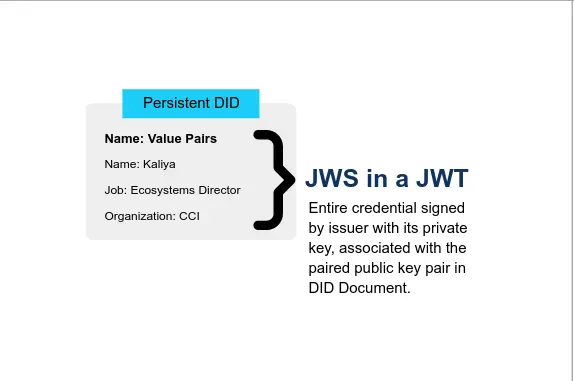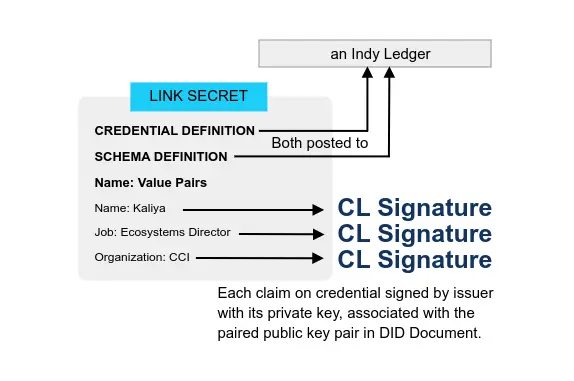Karyl Fowler and History of Transmute
Transmute Industries • Blog • Tech Talk • Github • Twitter • Linkedin
Transmute secures critical supplier, product, and shipment data to give customers a competitive edge in the increasingly dynamic global marketplace.
The Story of Karyl Fowler and Transmute
For all the sexy tech stuff happening, it’s deep comprehension of the business challenges that will drive adoption. This is one area my team has an advantage as Orie and I have almost no overlapping skill sets, which has allowed us to move fast, divide & conquer the business and technology components in parallel. - Karyl Fowler, CEO and Co-founder of Transmute
Towards the end of 2020, I was Contacted about an upcoming company announcement from Transmute. I took the opportunity to learn more about their work, and even got the chance to have a call with Karyl Fowler.
Transmute has been gaining momentum following their work with the US Department Homeland Security (DHS) Science and Technology Directorate’s Silicon Valley Innovation Program.
The announcement came on OCTOBER 21, 2020, with the news of Transmute closing a 2 million dollar seed round from Moonshots Capital, TMV, and Kerr Tech Investments.
With a clear opportunity to grow rapidly in the enterprise market, Transmute plans to deploy the new capital to expand its Austin, Texas-based team to service increasing customer demand. The company secures critical supplier, product, and shipment data to give customers a competitive edge in an increasingly dynamic, global marketplace.
These are clearly exciting times for Transmute and the industry as a whole.
Karyl’s Education and Background
While working in Economic Development for the Greater Austin Chamber of Commerce, Karyl earned a Masters of Science in Technology Commercialization from the University of Texas at Austin, Red McCombs School of Business.
Her work during this time focused mainly on recruiting tech and manufacturing companies to Austin, TX as well as supporting management of the city’s Foreign Trade Zone initiatives.
Karyl then worked for a semiconductor company, Novati Technologies, whose core business was in the defense sector. There, she leveraged data-driven strategies to achieve sustainable development partnerships and expand Novati’s bioelectronics portfolio to become a more integral component of their overall market strategy.
It was in that role when Karyl first became interested in data privacy, discovering business models that were being created around DNA sequencing, and seeing how little agency an individual had over their own genetic data.
This experience also gave her a front seat view of global supply chains - both the inherent complexity and even intentional opacity involved in moving highly regulated products across borders.
Early Hackathon Success
Upon graduation, Karyl began participating in hackathons with her co-founder, Orie Steele. Incidentally, most hackathon participants don’t arrive with a business-person.
This is where Karyl gave the team an edge, enabling them to show up with something just a little more polished than engineer-only teams.
They entered Austin’s first blockchain hackathon in early 2016, held at the Capital Factory, where they built a user-centric and traceable identity management application for refugees who were pouring into Europe at the time.
Understanding concerns about business models, built on your most intimate data, I wanted to see something where I had more control over who could access that, and I would actually own it. - Karyl Fowler, Giant Robots #324
Being blockchain agnostic
After discussing Karyl’s background and the story of Transmute, the subject came up about Transmute being largely blockchain agnostic. I was curious to know exactly what that means.
Karyl shared that Transmute has always felt strongly about interoperability, and just like cloud technologies, this would not be a winner-take-all scenario. They took a lot of flack for that position in earlier days, and for a while were feeling “too blockchain for the enterprise and too enterprise for the blockchain,” but ultimately their thesis is playing out.
She also shared that they are building in a time where the “winners” are still shaking out, and warned that some folks in the enterprise space are cornering themselves into a particular solution stack that could easily become obsolete.
To solve for this challenge, Transmute uses a flexible, ledger-agnostic architecture with adapters for a variety of ledger options depending upon the needs of where it’s being applied. An important component of interoperability involves building on open standards..
DHS Silicon Valley Innovation Program
Anil John and Melissa Oh, of the Silicon Valley Innovation Program (SVIP), were recently interviewed on the Federal Blockchain News Podcast, which sheds light into exactly what values the program operates under.
The DHS is focused on creating increased transparency in the cross-border supply-chain, which can lead to greater efficiencies in trade and unlock massive economic value. The DHS is focused on open-source, open-standards, and interoperability.
There was a significant push by large platform players and others, to set up a platform model […] sit in the middle and extract value from that platform. As a government, we are rather familiar with being walked into a corner and told that there is only one product that you will buy because it will solve the problem. - *Anil John, Federal Blockchain News
We believe there is a fundamental layer of security privacy and interoperability that should be common across all platforms. Then you build value-added services on top of it. - *Anil John, Federal Blockchain News
Transmute News
-
did:(customer)
Transmute builds solutions that solve real business problems. For this reason, we support a number of different decentralized identifier (DID) methods. While we are committed to providing optionality to our customers, it’s equally important to communicate the selection criteria behind these options so that customers can consider the tradeoffs of underlying DID-methods alongside the problem set they’re solving for. Essentially, we help them pick the right tool for the job.
-
Transmute Closes $2M Seed Round
Closing our seed round coincides with another exciting announcement: our recent launch of Phase II work with the U.S. Department of Homeland Security, Science & Technology’s Silicon Valley Innovation Program (SVIP) to enhance “transparency, automation and security in processing the importation of raw materials” like steel.
-
Transmute Releases Technical Workbenches
-
NFC + DIDs
Supply chains are complicated. While over 80% of logistics companies are investing in digitization to bring their supply chains into the 21st century, at the end of the day, not every step along the way can be web-enabled.
Transmute has been working on a solution: tying DIDs to Tangem NFC Cards, which carry a passport-grade secure chip, which implements public key cryptography. Near Field Communication (NFC) is the technology that enables things like contactless payments […] increasingly used in supply chains for things like inventory and warehouse management
-
Blockchain-secured Documents for Global Trade
On May 14th, 2020 Conexus Indiana and Transmute hosted an interactive webinar titled “Blockchain-secured Documents for Global Trade” as part of the Emerging Technology Showcase series.
-
The Business Case for Interoperability
For Transmute, the foundations required to technically interoperate are considered pre-competitive, and our ability to interoperate widely is a strategic feature. This feature powers a competitive advantage that ensures Transmute customers’ critical trade documents are verifiable at every step in the supply chain, regardless of where they’re stored and what blockchain they’re anchored to. Transmute customers realize maximum confidence about data integrity and access far richer insights about the health of their supply chains as a result.
-
Verifiable Credentials with Transmute and Okta
Okta provides a mechanism for adding custom claims to id_tokens and access_tokens: Hooks and Custom Authorization Servers. These components can enable automated integrations with emergent technology including decentralized identifiers and verifiable credentials.
-
Federated Enterprise Agents with Transmute and Okta
The Okta Identity Cloud provides secure identity management with Single Sign-On, Multi-factor Authentication, Lifecycle Management (Provisioning), and more. Transmute provides a configurable Enterprise Agent enabling Decentralized Identity and Verifiable Credential capabilities for OAuth / OIDC users. Read on to learn about some of the ways Transmute and Okta enable enterprises to rapidly unlock the security benefits of decentralized identities.
-
Encrypted Data Vaults
EDVs allow users and companies to store data with their favorite cloud storage providers without fear of vendor lock-in, while also ensuring that the storage provider has no access to their data whatsoever. With an EDV, the client does their own encryption and decryption using keys associated with decentralized identifiers they manage, and as such, acts as the true controller of their data.
-
DHS Awards $198K for Raw Material Import Tracking Using Blockchain
Its Phase 1 award project “Verifiable Provenance, Traceability, and Regulatory Compliance for Raw Material Imports” will adapt Transmute ID, its core technology product that leverages centralized and decentralized identity infrastructures to secure individual agency identities and verifiable credentials to ensure that CBP has visibility into the provenance, traceability and regulatory compliance of raw material imports.
-
Element Block Explorer
We’ve made some serious upgrades to the Element-lib which is the javascript library we use to implement the Element DID. As we mentioned in our last post here, Element is a Sidetree Protocol based DID Method that relies on Ethereum and IPFS. Our implementation is unique in that we provide a JavaScript library that runs in both the browser and node.js, in addition to providing a server-based REST API.
Our first implementation of Element enabled users to anchor their DID directly via a MetaMask-powered DApp thanks to Infura, and also use our “Full Node” to submit operations. Supporting both modes introduced a lot of complexity, and highlighted some scalability issues which we’ve recently fixed.
-
Introducing: Element - The Sidetree Protocol Implemented on Ethereum
the scalability that Sidetree brings to DIDs is unprecedented. Our product, Transmute ID — enterprise-grade decentralized identity — must support scale that we could not achieve otherwise, so we are proud to offer Element as an alternative DID method for Transmute ID customer deployments.
-
transmute-industries/sidetree.js
Sidetree.js is an implementation of v0.1.0 of the sidetree specification
-
Summer 2019 Update
Supply chain logistics companies are particularly interesting with how they manage their extended business networks as they compete for new business. This includes faster and safer on-boarding of customers and third-party vendors, and new ways to manage the lifecycle and associated data of those relationships.
The potential of integrating Transmute’s user/company managed identities (DIDs) and trusted data (verifiable credentials) as tools for powering this new way of networking is leading to increased interest from prospective enterprise customers. As a result, we are expanding both our thought leadership and systems design consulting offerings.
Early work on an Ethereum dApp Platform
-
Back to the Basics 6/16/19
Several mentors have encouraged me to publicly share a more detailed account of Transmute’s choice to shift focus solely to commercializing Transmute ID, the decentralized identity component of our original product, the Transmute Platform — a Heroku-like rapid dApp builder that seamlessly bridged centralized and decentralized tech, specifically for existing enterprises.
[…]
there was zero near-term enterprise demand in the token-powered functionality of the platform. We searched high and low, interviewing most of the major enterprise storage solutions out there and couldn’t even find one willing to admit that investing decentralized storage tech was on their 5 year innovation roadmap.
[…]
we did uncover a demand for user-centric identity tech (e.g. increased security, privacy, portability, infinite federation/scalable, etc.) and an enormous demand for the resulting efficiency gains and untapped revenue potential of implementing a decentralized identity solution. Because these directly address problems enterprises are facing today, and they directly connect to the cost/profit levers that enterprise stakeholders care most about. -
GitHub DID - (source)
npm i -g @github-did/cli
ghdid init "my-password" https://github.com/USERNAME/ghdid
# if you need to revoke all / reset your DID
ghdid init "my-password" https://github.com/USERNAME/ghdid --force -
Transmute ID Alpha 1/2019 (sixth monthly release)
One thing we learned from our Orbit DB PoC is that the DID spec offers a lot of valuable flexibility. Most DID systems achieve censor resistant decentralized storage and cryptographic decentralized identity protocols through a single identifier (hash of or full public key). We found it is possible to create a valid DID implementation that is anchored by 2 public keys, one for updating the filesystem, the other for managing the integrity of the documents, identities and claims.
-
Release 0: Sol 6/2018 (1st release since finishing Techstars)
This release was focused on building support for decentralized identities into centralized directory technology that is already widely adopted by enterprises. This work involved adding UI to our React dashboard and updating our API to support registration and group management. We have also done some exploratory work regarding the DID spec and LDAP integration […]
This release we focused on the centralized side of group membership. This use case relies on the integrity of the directory and discretionary access control. In other words, the directory admins can move users between groups, but users cannot control what groups they are assigned to. -
Release: The Transmute Framework Alpha 4/18
The Transmute Framework helps developers build on decentralized technologies like Ethereum and IPFS via a familiar javascript interface. We support rapid prototyping by enabling developers with Redux experience to quickly build out decentralized applications.
This release focuses on support and documentation for the EventStore. Using the EventStore and the Transmute Framework, developers can save events to Ethereum and IPFS, track and query the event-sourced data models, and leverage the immutability properties of IPFS and Ethereum.
-
Transmute IoT 6/17
The Transmute team joined forces with other Austin hackers to participate in the first Mobility X hackathon at Capital Factory sponsored by car2go a few weekends ago where hackers were challenged to address how to handle rider demand fluctuations or ensure consistent vehicle connectivity.
Maintaining network connectivity felt like the most urgent problem to solve given an effective solution would mean more accurate data on the car2go fleets, resulting in an expanded capacity to address rider demand changes. Mesh networks have been explored as a natural solution for maintaining network connectivity among distributed assets that are moving around geographically. …
Co-Founders
Transmute is committed to accelerating the adoption of decentralized identifiers and verifiable credentials to enable secure, dynamic trade. We charge ourselves and the greater digital identity community to focus on building evolved solutions that challenge the status quo to find superior economic models and reliable data security practices, resulting in a better future for everyone.
| Karyl Fowler (CEO) | Orie Steele (CTO) |
|---|---|
 |
 |
| @TheKarl – linkedin | @or13b – linkedin |
Resources
-
How Refugees Sparked this Startup to Solve the Enterprise Identity Crisis
In the spring of 2016, technologists Karyl Fowler and Orie Steele entered Austin’s first blockchain hackathon contest aimed at solving mobility challenges which drew project topics from smart parking apps to addressing social mobility barriers. At the time, thousands of refugees were pouring into Europe with no means to identify themselves. Government organizations had no integrated way to validate and track identities across the variety of disparate systems they use to manage the asylum process, complicating an already massive humanitarian crisis. So, Fowler and Steele built an identity management application for refugees that was user-centric, secure and traceable.
-
324: Tap the Market (Karyl Fowler)
Karyl Fowler, CEO & Co-founder of Transmute, discusses utilizing block chain for decentralized identity-management, exploring finding the right customer profile fits, education around data-security, her time at Techstars, and the startup community in Austin.





